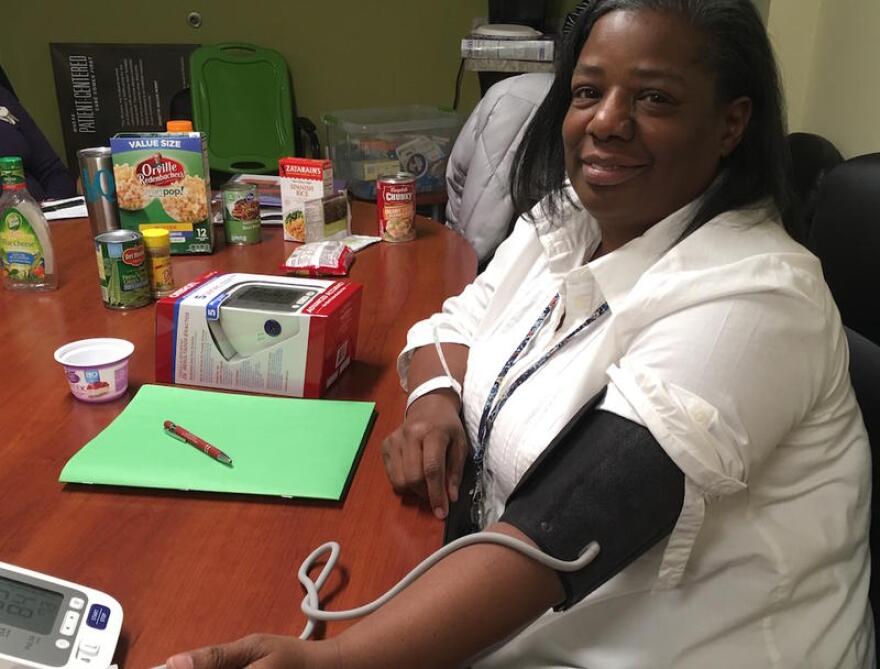Vanderbilt cardiologists are finding some benefits in keeping things simple to reduce the risk of heart disease. Their study of a four-in-one pill was published Wednesday in the New England Journal of Medicine.
The Vanderbilt researchers had to make their own "polypill," as they’re known. They put three kinds of low-dose blood pressure medication and a cholesterol drug in a purple capsule.
And participants, like Lula Williams, 65, of Gautier, Miss., found it much easier to take as prescribed than her current cocktail of medication.
"You know how when you have a certain time to take your medicine, the phone rings?" she asks. She says her blood pressure and cholesterol medicine are all about the same size, and all white.
Avoiding confusion and remembering to take the pills isn’t the only benefit. Combining medications allowed doctors to lower the doses of each, which reduced some notorious side effects. Patients treated for high blood pressure often complain of low energy and sex drive.
"I'm more active," Williams says. "I was feeling sluggish in the beginning. And when I started taking the pill, I started walking 5 miles every morning."
Williams says the activity has helped her lose some weight, which has also improved her other heart disease risk factors.
Critics have questioned the one-size-fits-all approach, especially in an era of precision medicine. Until now, the polypill has been tested mostly in developing countries.
Vanderbilt’s is the first U.S. study. It focused on low-income populations based at a community health center in Mobile, Ala. Almost all participants were also black. The randomized trial found a 25% drop in heart disease risk compared to the control group.
"The pill may address some of the barriers that contribute to disparities in health based on geography, socioeconomic class and other parameters that we know have existed in this country and other countries for a while now," said senior author Thomas Wang, Vanderbilt's chief of chief of cardiovascular medicine. "Despite advances in the prevention and treatment of cardiovascular disease, it remains the No. 1 global killer of both men and women."
Even those who saw improvement in blood pressure and cholesterol through the polypill had to go back to multiple medications at the end of the study since the four-in-one medication is not on the market.




